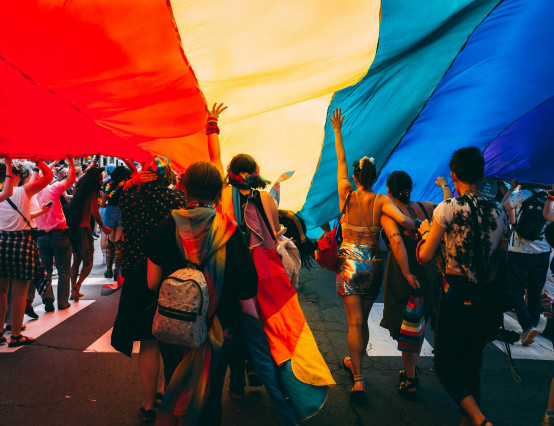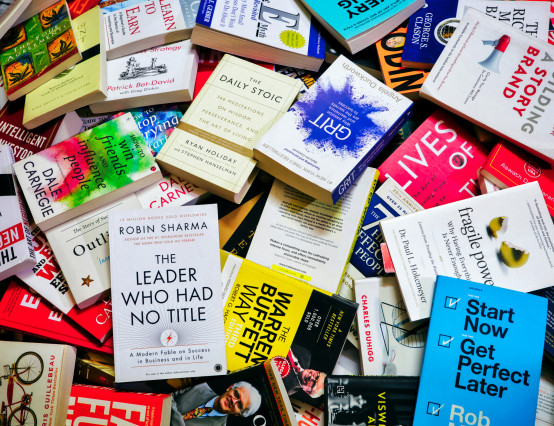There has been much written about the toxicity of celebrity culture and those whom its harshness has affected. However, a lot of publications focus on this topic and maintain an angle toward the public: how consuming celebrity content is toxic for the everyday viewer or reader of celebrity news.The toxicity of celebrity culture in the music industry, though, is inherently woven into the lives of its stars. Especially for big-name stars such as Taylor Swift and Demi Lovato, who both entered the industry at a young age, to escape the music industry's clutches unscathed would be naive to assume.
Therefore, I believe it is more important than ever to consider musicians as humans instead of as machines for pumping out content. In the contemporary world, stars are increasingly able to find their voice through the release of autobiographical documentaries, such as 'Miss Americana' (2020) which follows the timeline of Swift's fame, and 'Dancing With The Devil' (2021), where Lovato opens up about their struggles. So, as consumers of celebrity content in a world striving for positive social change, it is time we lend our ears to better understand the issues hidden among the "dark side of celebrity".
This article will explore three of the main issues discussed by Swift and Lovato in their corresponding documentaries: the music industry's oppressive nature and misogyny upon its female starlets, the performative element of a star's sexuality, and the negative impact of social media upon celebrity figures. There is sure to be a lot more that can be said regarding the lives of stars, as they are so complex, but these three areas consistently appear as prominent within the day-to-day lives of female celebrities.
The oppressive nature of the music industry
At the beginning of Miss Americana, a viewer can see Taylor Swift sitting in her childhood bedroom, sifting through her old diaries. In these diaries, she revelled in the fantasy of one day becoming a star and discussed her moral code to be seen as "good". Swift details how, from such an early age, it was her sole desire to be seen as "a good girl", as being "good" meant that others were pleased and that the world was happy with her. Ultimately, who wouldn't want that? To live in a world where everyone approves of you and your behaviour results in no conflict. This code, instilled from a young age, bled into Swift's career life as she grew older, causing her difficulty speaking out against situations where she felt uncomfortable or when she wanted to be heard. During uncomfortable interview questions aimed at interrogating Swift and her private life, she would be "too polite" to say no, and when others were rude to her on talk shows, she would just smile and take it. For this reason, Swift also decided to never discuss controversial topics, such as politics, for fear of having an opinion impacting her career.
'A nice girl smiles and waves and says thank you. I became everything that the world wanted me to be.'
For young female stars like Swift, this fear was very real. In 2003 then-popular girl band, the Dixie Chicks (whom Swift greatly admired), were seemingly "cancelled" overnight commenting on disliking Donald Trump while hosting a concert. This is a cancellation that the band never fully recovered from, illustrating to other women in the industry that speaking out, especially against powerful male figures, could be detrimental. So, outside of the documentary space, Swift remained silent.
This ideology of oppression also impacted the life of Lovato, particularly in relation to their sexuality.
The suppression of sexuality
Out of Swift and Lovato, the suppression of sexuality most prominently affected Lovato, although living up to society's expectations of beauty had a major impact on Swift. Lovato entered the spotlight as a "Disney Kid" before getting into music and becoming a stereotypical role model for young girls. They were pretty, ambitious, and spread messages of positivity to their fanbase. Although on the surface, it appeared as if Lovato had it all, they were becoming depressed and tired of living up to the expectations of being a role model that they never wanted to be. After coming out as non-binary in 2021 and shaving their long hair off to feel free from the expectations previously placed upon them as a "woman", Lovato began embracing themselves and their life in a new way. Dancing With The Devil and the podcast '4D With Demi Lovato' discusses this juxtaposition between liberation and oppression in further detail, particularly its episode featuring guest-star Alok Vaid-Menon.
'I am proud to let you know that I identify as non-binary & will officially be changing my pronouns to they/them moving forward' (Twitter annoncement @ddlovato, 19th May 2021).
To think of the suffering that Lovato had to face relating to suppressing their sexuality and performing to a gender stereotype is shocking. At the tender age of 15, the star was raped by a member of their team, and they were forced by their management team to dress in "sexy" outfits, which provocatively flaunted their body, despite wanting to cover up. In Lovato's song 'Melon Cake', the star sings about how, on their birthdays, they weren't even allowed to have an actual cake to celebrate the occasion - just a slice of watermelon covered in icing, so their weight was kept down.
Lovato describes their "#MeToo" moment in Dancing With The Devil, and Swift describes hers too in Miss Americana, after winning a court case against a man who groped her whilst her picture was being taken by the press. The boundary between “female” stars, men in higher positions of power, and the paparazzi is disgustingly blurred, which the next point shall continue to explore.
The impact of social media
Social media greatly impacted the lives of both Swift and Lovato. Swift remarked in Miss Americana how constantly seeing photos of herself every day online ruined her relationship with her body, resulting in the development of an eating disorder. Whereas, thanks to social media, news of Lovato's near-fatal overdose in 2018 spread across the globe before the star even had the chance to tell their family about it. Imagine being in a world where everything is that invasive, where a photo of you can always be taken, and when you don't know who in your close circle can be trusted not to spill your news to the world.
'I've learned over the years that it's not good for me to see pictures of myself everyday.'
When media publications discuss celebrity toxicity, they discuss how seeing perfected images of stars is detrimental to the general public's wellbeing. However, less so are there articles or papers that think into the impact of the media and celebrity status upon the stars themselves. Without documentary spaces like those mentioned, where can a star prominently speak about their life from their perspective and begin to reclaim their narrative? Many people hold the belief that stars shouldn't complain about their struggles because they are famous, but as people who went into the industry wanting to create, do they really deserve quite so much trauma?
Today an increasing number of young female musicians are utilising their social media platforms as a way to advocate for causes and speak their truth, which is interesting to note. For instance, Billie Eilish speaks openly about her mental health on a frequent basis, and other stars, such as Selena Gomez, have publically made the decision to quit the platforms altogether. Gomez still advocates for causes that matter to her in a different way, such as embracing our skin and body through her makeup line, Rare Beauty. Her social media pages still exist but are run by a management team to ensure a distance between the toxicity of social platforms and the star.
When considering the gravity of what Swift and Lovato have been through alone, it becomes extremely concerning how damaging fame can be for young female musicians. There are headlines targeting them every day: for instance, comments about Olivia Rodrigo's weight, how she's "stealing" concepts from other people's songs, and how she needs to stop writing about guys even though male artists write about their exes and heartbreaks too... the list could go on.
To see the documentary space and social media platforms used in ways to empower stars is refreshing and, honestly, much needed. Although, seeing stars such as Gomez choose to become a bit more private to avoid some of the struggle is more than understandable. I hope that in the future female celebrities will be treated on a more equal level to their male counterparts. However, sadly, the music industry still has a long way to go.









0 Comments